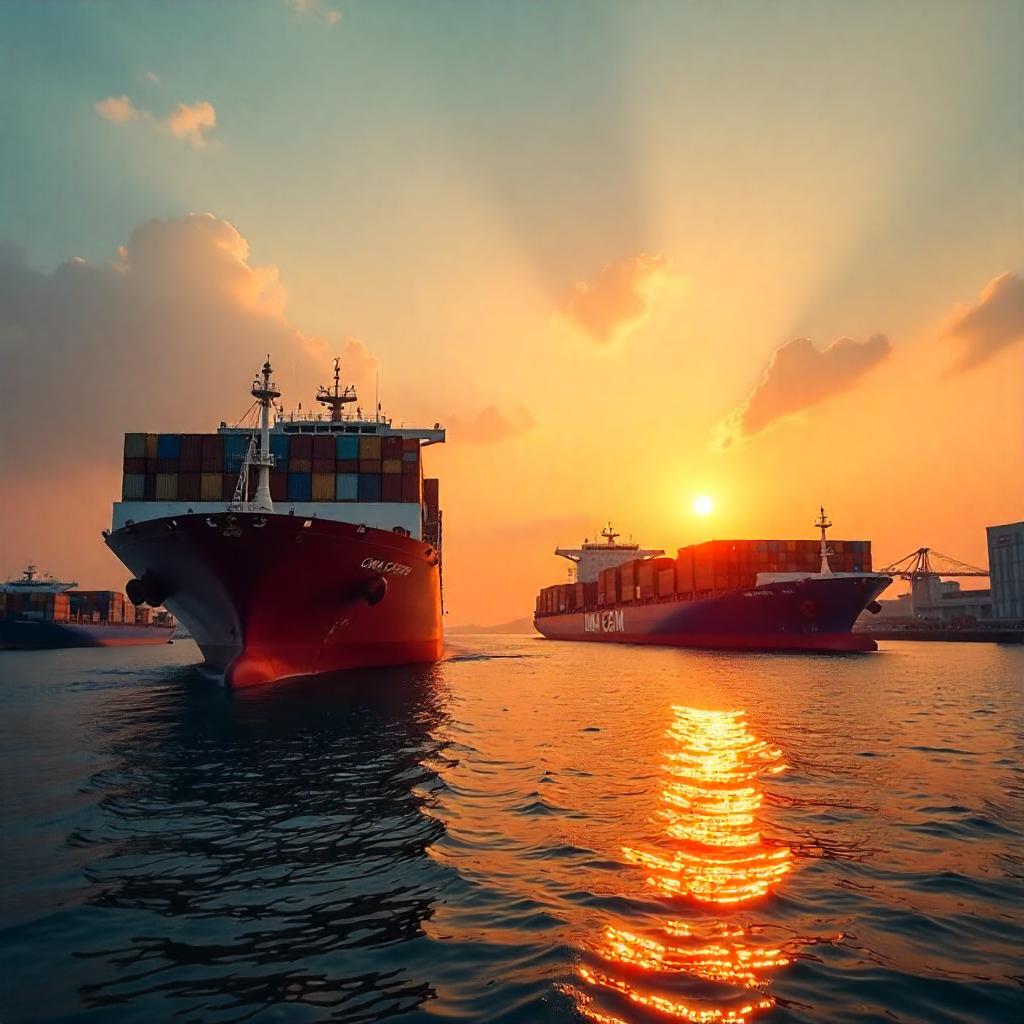The container shipping industry is led by a few global players whose fleets span continents and drive the movement of goods across supply chains. These companies aren’t just logistical giants—they influence the flow of the global economy through technological innovation, sustainability efforts, and strategic infrastructure investments. Here’s a closer look at the five most dominant container shipping companies and how they maintain their leadership positions.
MSC – Maintaining the Top Spot Through Scale and Innovation
The Mediterranean Shipping Company (MSC) stands as the world’s largest container shipping company, with a fleet capacity exceeding 5.2 million TEUs and operations in more than 500 ports globally.

- MSC continues to invest in ultra-large container vessels and cutting-edge digital platforms.
- The company emphasizes operational efficiency and real-time shipment tracking.
- Its strategy focuses on aggressive expansion and innovation, ensuring it remains at the top of the industry.
Maersk – Driving Sustainability in Shipping
A.P. Moller–Maersk ranks second globally but leads in environmental transformation. The company is redefining container shipping by pioneering clean energy solutions and integrated logistics.
- Maersk has launched methanol-powered ships that cut emissions by up to 95%.
- The firm is developing end-to-end supply chain services, enhancing customer experience.
- Its broader ambition is to evolve from a shipping company to a fully integrated logistics provider.
CMA CGM – Technology-Driven Growth
French company CMA CGM holds third place in the global rankings, known for adopting advanced technologies and sustainable practices.
- The company has introduced AI-powered platforms that optimize cargo logistics and reduce delays.
- Its fleet expansion includes LNG-powered vessels, showing its commitment to green shipping.
- Under visionary leadership, CMA CGM continues to prioritize smart logistics and customer-first strategies.
COSCO Shipping – Expanding Trade Routes
Chinese shipping major COSCO Shipping ranks fourth and plays a central role in connecting global trade routes, especially through Asia-Europe-Americas corridors.
- COSCO is deeply tied to China’s Belt and Road Initiative, boosting intercontinental connectivity.
- Recent investments include new container terminals across emerging markets in Africa and Southeast Asia.
- The company is strategically positioned to support international trade growth and logistics infrastructure.
Hapag-Lloyd – Building Trust Through Reliability
Germany’s Hapag-Lloyd takes the fifth spot, known for consistent service and innovation despite a smaller fleet size of around 1.8 million TEUs.
- It has integrated blockchain into its systems to improve transparency and security in shipping.
- The company boasts one of the highest customer satisfaction rates in the industry.
- By focusing on digital transformation and service excellence, Hapag-Lloyd maintains its competitive edge.
Market Share Snapshot and Emerging Alliances
As of 2025, the top five container shipping companies account for significant market shares:
- MSC leads with 19.9%
- Maersk follows with 14.6%
- CMA CGM holds 12.7%
- COSCO stands at 10.8%
- Hapag-Lloyd captures 7.0%
Key strategic changes are underway. MSC is preparing to operate independently, while Maersk and Hapag-Lloyd plan to form the new Gemini alliance, signalling a reshaping of global shipping partnerships.Looking Ahead – Challenges and Opportunities
The future of the container shipping industry is set to be shaped by environmental regulations, automation, and shifting global trade dynamics. With new alliances, fuel technologies, and digital innovations on the rise, the top companies must continue evolving to retain their leadership. The coming years could see new players emerge or major shake-ups in the existing hierarchy.
